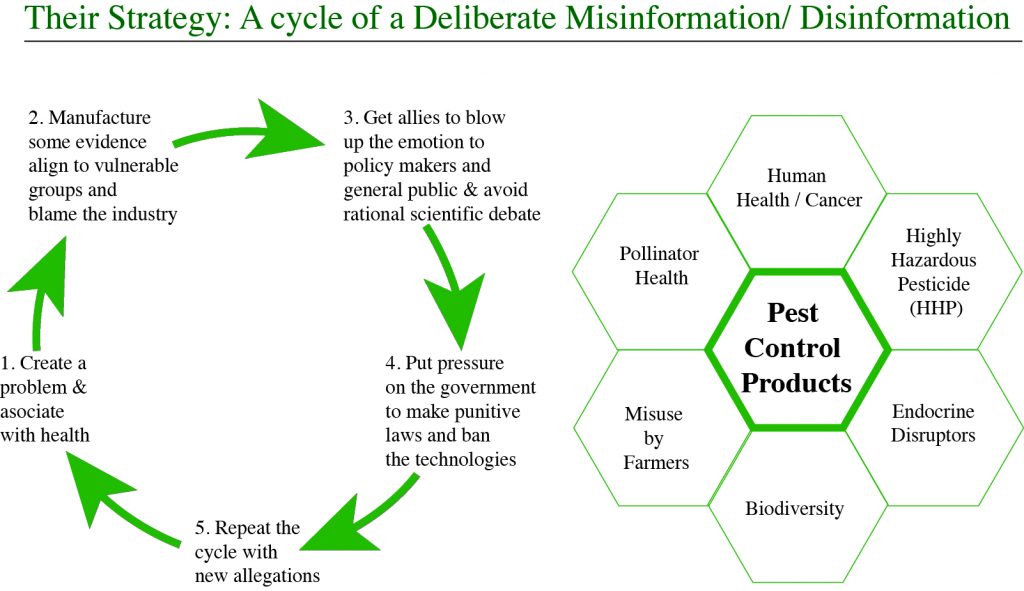Despite the significant contributions of the ornamental sector the sector is still a victim of negative reporting from bloggers and the media. Well-funded and coherent campaigns targeting treaties and bilateral commitments, consumers and market outlets, as well as well-connected bloggers and media and politically globalized activist groups, continue to denigrate the sector. Their implementation path focuses on emotional vs. rational arguments. They stoke fear with simple, raw, emotional messages, not scientific facts. This was a discussion during a two day conference attended by all the sector stakeholders.
The cycle of targeted misinformation and disinformation around pesticides starts by creating an issue and linking it to health. They target vulnerable people and fabricate evidence to incriminate the industry. They then look for allies in the market, policymakers and the public, especially consumers, to elicit their emotions. They ignore scientific facts to provoke emotional arguments. They are pressuring consumers, supermarkets and other retailers to avoid Kenyan flowers. They have also exerted similar pressure on the government to enact punitive laws and ban some innovations. This negative reputation is really damaging the country.

Effect
Those who are negative about the flower sector were mainly influenced by the manipulative propaganda tactics used in lobbying, rather than by their own experience or practical contact with observed reality. Many experts argue that doubt, fear and uncertainty are strategies to influence people’s perceptions by spreading negative, dubious or false information. Today, not only ordinary people, but also authorities, academics and well-known experts in the development and service sectors from all over the country are subject to the spread of rumours and campaign propaganda, and are reluctant to speak out loud about the positive aspects of the flower business and its contributions to the public.
Negative emotions cause strong emotions
We have all heard this unpleasant news in various places. While most people consider rumours to be harmless, they can affect the health of an industry. Learning how to distinguish fact from lies can be extremely empowering, both mentally and physically. What if the rumours are harmful? What if they damage a company’s reputation, survival, or normal operations? What if you are the target of rumours that are not true? When the news is unrealistic, the impact can be immediate and long-term. In most cases, an unrealistic story can shake your emotions and change your disposition.
Depending on the strength of your emotions, what story it evokes, and what reaction it provokes, it may stay with you even if you find it to be false. You may even recall these emotions when you read another article on the same subject.
All said, regardless of industry, realistic research and information gives us more power because the more we know, the more we can affect positive change at both the industry and societal levels.
Current Status
Kenya’s floriculture began in the late 1960s. The sector flourished in the 1990s with large-scale exports of cut flowers. The period after 1990 was marked by the influx of many foreign companies and impressive export growth.
Today, the floriculture sector has steadily contributed to the national economy for many years and is the second largest export item. It is estimated that 2.5 million Kenyans depend on floriculture, of which 150,000 people, 70% of whom are women, work on flower farms. Kenyan floriculture exported 230,000 tonnes worth US$850,000 in 2023, contributing about 1.5% to the national economy.
Next Week: We focus on the truth,
